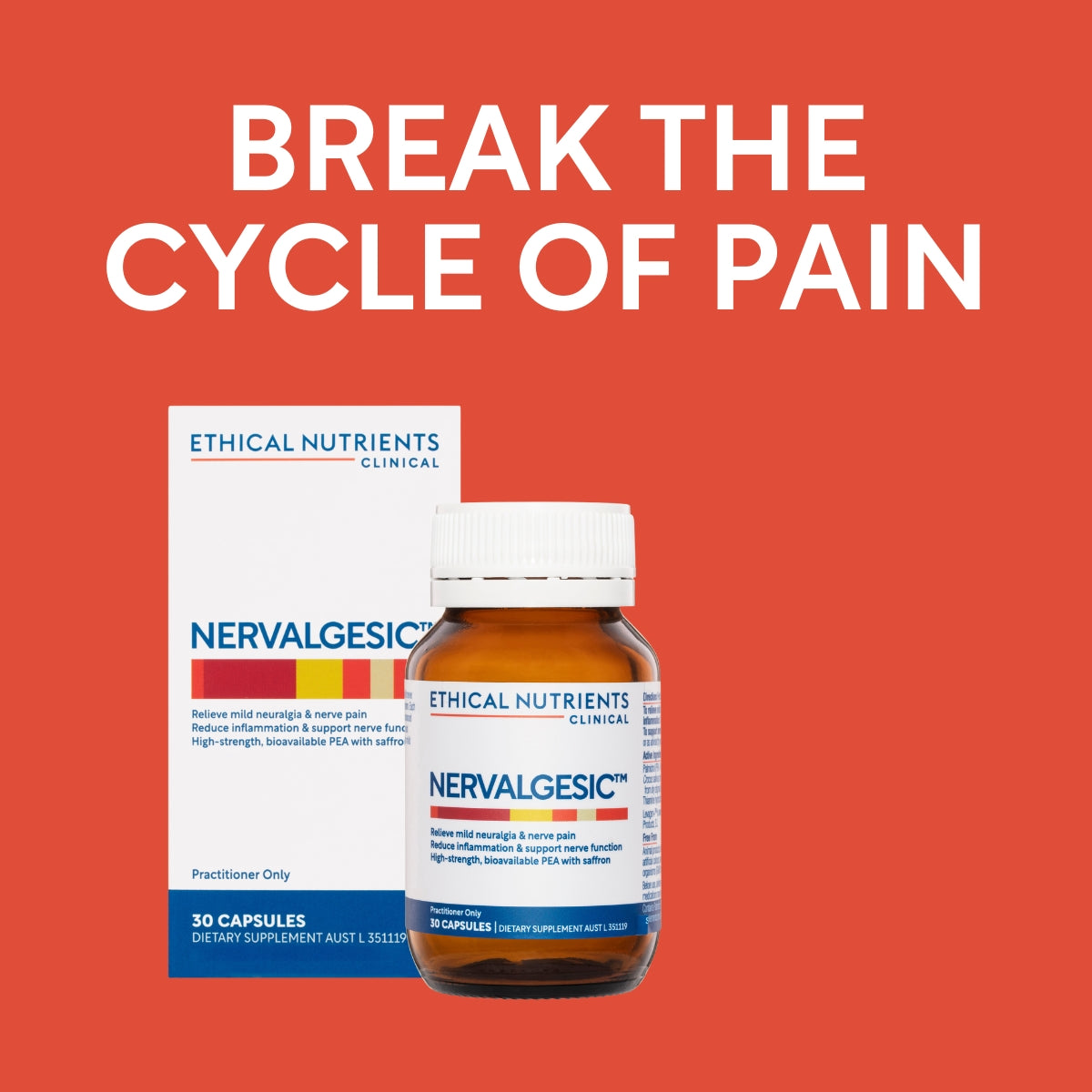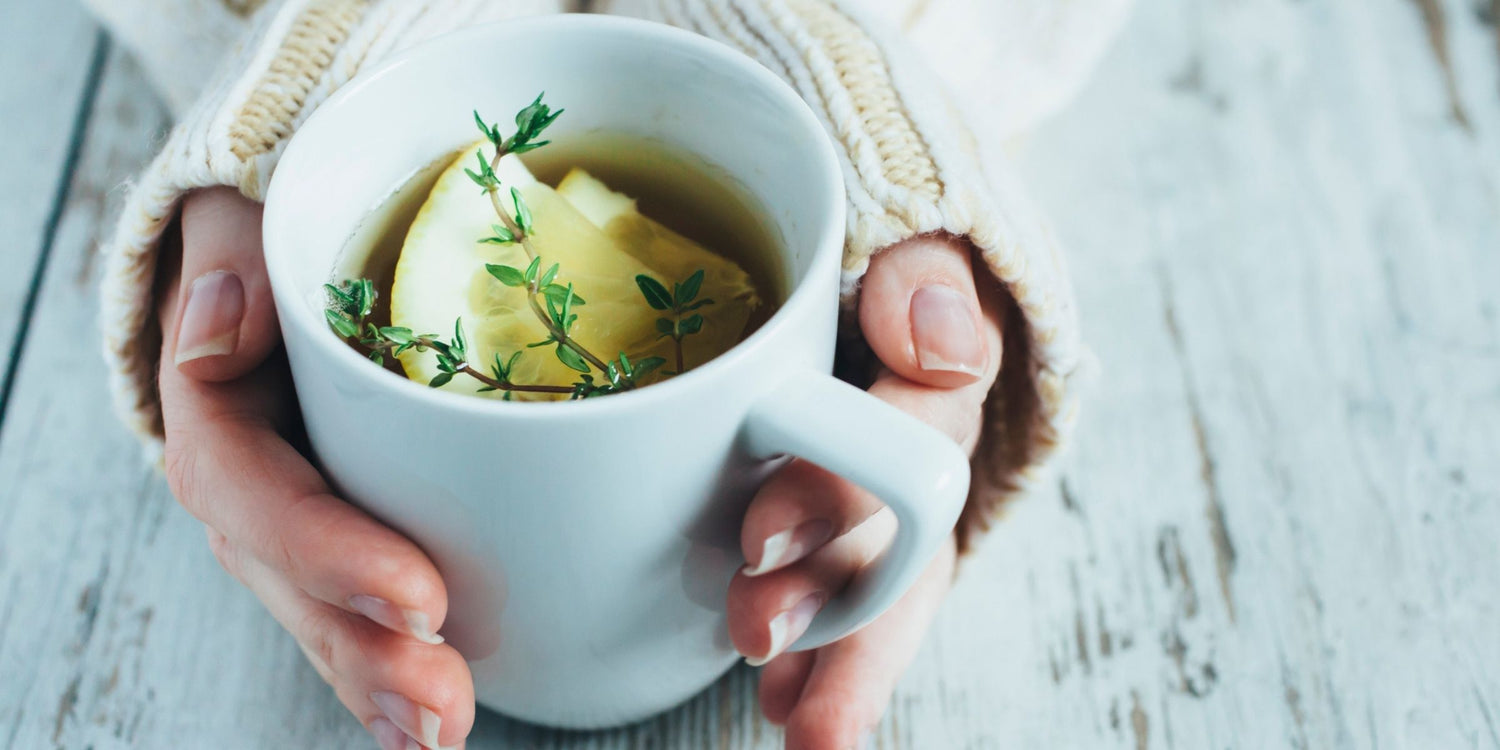As the days get shorter and the mornings get cooler, it’s a good time to start prioritising your immune health. Winter is synonymous with colds, flus and other mild upper respiratory infections thanks to spending more time indoors in close proximity to other people. Research has also found that the cold air itself can impair the body’s natural ability to fight off germs.1 Preparing your body for the winter season early through nutrition, supplements and simple lifestyle habits can help build your immune resilience, reducing your likelihood of falling ill and helping lessen your recovery time if you do.
What should I eat to support my immune system?
There are many different foods with immune-enhancing properties that you could include in your daily diet to help prime your body for winter.
Ginger
Ginger has anti-inflammatory, antioxidant and anti-microbial benefits2 making it one of the top foods for immune health. Add to stir-fries, curries and salad dressings, or if you’re feeling under the weather, make a tea with thinly sliced ginger, lemon juice and honey.
Honey
Research has found that humble honey can help stimulate the body’s immune response by increasing B and T-lymphocytes.3 It also has antibacterial, anti-oxidant and anti-inflammatory effects.3 Add raw, unprocessed honey to porridge, chai tea, smoothies, salad dressings and marinades.
Garlic
Garlic contains compounds that can enhance the natural functioning of the immune system. Add to pesto, guacamole, soups, salsa, stir-fries and pasta dishes.
Mushrooms
Mushrooms contain substances that can help modulate and activate the immune response.4 Include a variety of mushrooms such as white button, shiitake, oyster, porcini and enoki by frying them with butter and thyme and eating with sourdough toast or add to stir-fries, pasta, omelets and soups.
Berries
Berries pack a big nutritional punch as a source of important immune ingredients including vitamin C, vitamin E and vitamin A and appear to have immune-boosting benefits thanks to their polyphenol content, a type of plant antioxidant. Eat a variety of fresh berries each day (blackberries, raspberries, blueberries, strawberries), add to smoothies, organic yoghurt/coconut yoghurt or make an acai berry bowl.
Orange and dark green vegetables
Including spinach, carrots, sweet potato, broccoli and capsicum into your daily diet will deliver beta-carotene (and other crucial nutrients), which the body converts to vitamin A, an important contributor to immune health.
Are there immune supplements I can take?
Taking a high quality supplement with key vitamins, minerals and herbs can help strengthen and support your body’s natural immune defences in preparation for the cold season. Key ingredients to look out for include:
Andrographis
Andrographis is a herb traditionally used in Chinese medicine to promote the body’s immune responses and reduce the severity and symptoms of mild upper respiratory tract infections like the common cold.
Vitamin C
Vitamin C significantly contributes to immune defences by stimulating the production and function of white blood cells and enhancing the germ-killing effects of neutrophils.5 Taking a vitamin C supplement has been found to reduce the likelihood of falling ill with mild upper respiratory tract infections and minimising the duration and severity of cold symptoms. Vitamin C is a great supplement for the whole family to take to support the immune system and provide natural relief for colds. For kids, look for chewable vitamin C tablets.
Zinc
Zinc is another essential nutrient for immune health. If your body doesn’t get enough zinc it can impair your immune defences and reduce your ability to fight off infection.6 Including zinc tablets in your daily routine may help prime your immune system for winter.
Vitamin D
With shorter and darker days, we tend to get less sun exposure, which affects the body’s ability to produce vitamin D. The problem is, vitamin D is a crucial nutrient for the immune system and having insufficient levels can compromise immune function.7 Taking a vitamin D supplement may be a necessary step in supporting your immunity throughout the colder seasons.
Check out our comprehensive immune range here.
What other actions can I take to support my immune system?
In addition to including immune-enhancing foods and taking immune supplements, there are other steps you can take to prepare your body for winter. Prioritising sleep is crucial since sleep helps strengthen the immune response by increasing cytokine production.8 On the other hand, getting inadequate sleep can increase your susceptibility to getting sick.
Staying active is also highly important since moderate exercise has been shown to strengthen the immune system by enhancing cytokine and lymphocyte production.9 Try a daily brisk walk, bike ride to work, do laps at the local pool or a Pilates/gym class to support your immune defences. Long-term stress can also affect immune function10 so try managing your stress levels with a daily meditation practice, yoga, deep breathing or journaling. And of course, continue to regularly wash your hands.
References
- Huang D et al, 2022, ‘Cold exposure impairs extracellular vesicle swarm-mediated nasal antiviral immunity’, Mechanisms of Allergy/Immunology, vol 151, no 2, pp 509-525
- Anh NH et al, 2020, ‘Ginger on Human Health: A Comprehensive Systematic Review of 109 Randomized Controlled Trials’, Nutrients, vol 12, no 1, p157
- Samarghandian S at al, 2017, ‘Honey and Health: A Review of Recent Clinical Research’, Pharmacognosy Res, vol 9, no 2, pp 121-127
- The Nutrition Source, Mushrooms, Harvard School of Public Health, viewed 22 March 2023, <https://www.hsph.harvard.edu/nutritionsource/food-features/mushrooms/>
- Carr A et al, 2017, ‘Vitamin C and immune function’, Nutrients, vol 9, no 11
- Shankar A, et al, 1998, ‘Zinc and immune function: the biological basis of altered resistance to infection’, Am J Clin Nutr, vol 68, no 2, pp447-463
- Aranow C, 2011, ‘Vitamin D and the immune system’, J Investig M, vol 59, no 6, pp881-88
- Opp M, 2015, ‘Sleep and immunity: A growing field with clinical impact’, Brain, behavior and immunity, vol 47, pp 1-3
- da Silveira MP et al, 2021, ‘Physical exercise as a tool to help the immune system against COVID-19: an integrative review of the current literature’. Clin Exp Med, vol 21, no 1, pp15-28
- Dhabhar FS, 2014, ‘Effects of stress on immune function: the good, the bad, and the beautiful’, Immunol Res, vol 58, no 2-3, pp193-210






